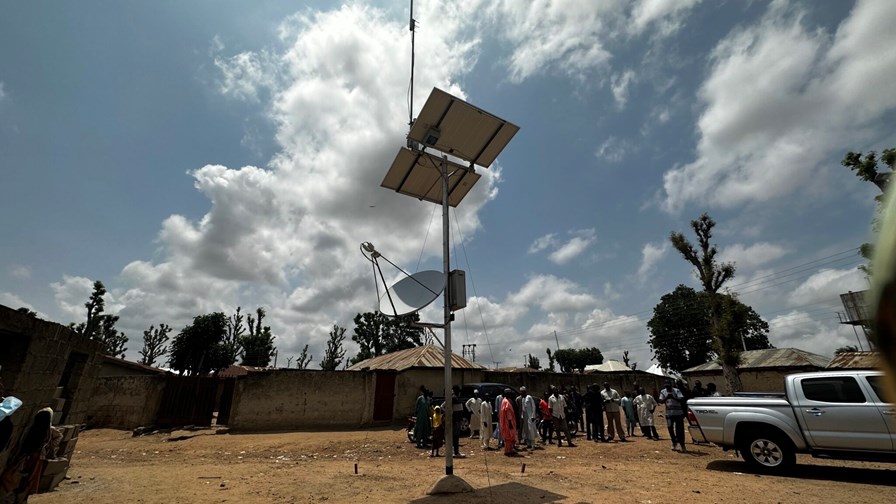
- Africa Mobile Networks has connected more than 100 of its rural base stations in Nigeria to Starlink’s low-earth-orbit satellite constellation
- Total traffic volumes have apparently shot up 45% in the rural villages where cell sites are connected using Starlink backhaul
- The 100 milestone comes four months after the first Starlink-equipped AMN base station was installed in the country
- AMN expects to double that number by the end of the year
Wholesale operator Africa Mobile Networks (AMN), which has subsidiary companies spread across sub-Saharan Africa offering mobile network operators access to its specialised neutral host rural base station equipment, has announced a milestone in its commercial relationship with satellite operator Starlink, an Elon Musk SpaceX company.
More than 100 AMN radio nodes (ARN) in Nigeria are now connected to Starlink’s low-earth-orbit (LEO) satellite constellation. The initial rollout by AMN teams seems to have been a huge success and produced “excellent results”, the company noted in a recent announcement. On average, flagged AMN, traffic volumes have increased by around 45% across all sites migrated to LEO backhaul.
By using Starlink’s LEO constellation, AMN said it was “able to unlock the full capability of the ARN to support the ever‑increasing amounts of bandwidth and data volumes demanded by subscribers”.
AMN, registered in the UK and backed by Facebook and Intelsat, developed the software‑defined ARN. The product is pitched as a multi-carrier and multi-technology (2G/3G/4G) radio node, which can operate up to five simultaneous carriers in either a 2G+3G or 2G+4G configuration. By using LEO backhaul, AMN claims it has been able to increase base station capacity remotely with no change to existing onsite hardware.
“To illustrate the power of the ARN and Starlink together,” remarked the official announcement, “some rural AMN sites are processing more than 25,000 voice minutes per day.”
The first Starlink terminal linked to an AMN base station in Nigeria was installed in April this year. Before the year is out, AMN expects the number of Nigerian rural villages hooked up to Starlink backhaul to reach more than 200. There is also an expectation at AMN that the hook-up with Starlink will pave the way for 5G services later this year.
AMN began rolling out rural base stations in Nigeria in 2018. The company said in April 2024 that it owned and operated some 1,600 base stations across the country, but was aiming to increase that number to 2,000 by the end of June.
Nigeria is AMN’s Starlink frontrunner
LEO developments in Nigeria come on the back of a commercial agreement between AMN and Starlink, announced in July 2023, to “connect millions across Africa”. Nigeria, as far as TelecomTV is aware, seems to be the only country so far that has Starlink-connected ARNs up and running.
At the time of that agreement, AMN said connectivity services were accessible by more than 10 million people in nearly 4,000 communities across 14 countries in sub-Saharan Africa “as a direct result of AMN towers.”
Backhaul is one of a number of services that the increasing amount of LEO hopefuls – including Starlink, Eutelsat’s OneWeb and Amazon’s yet-to-launch Project Kuiper – are offering, either directly to customers or via partners such as telcos and neutral host operators, around the world and not just in developing markets: Earlier this year, major UK mobile and broadband service provider Virgin Media O2 (VMO2) announced it is to use Starlink connections for backhaul in remote areas, while Australia’s Telstra is using OneWeb for backhaul connectivity.
- Ken Wieland, Contributing Editor, TelecomTV
Email Newsletters
Sign up to receive TelecomTV's top news and videos, plus exclusive subscriber-only content direct to your inbox.




